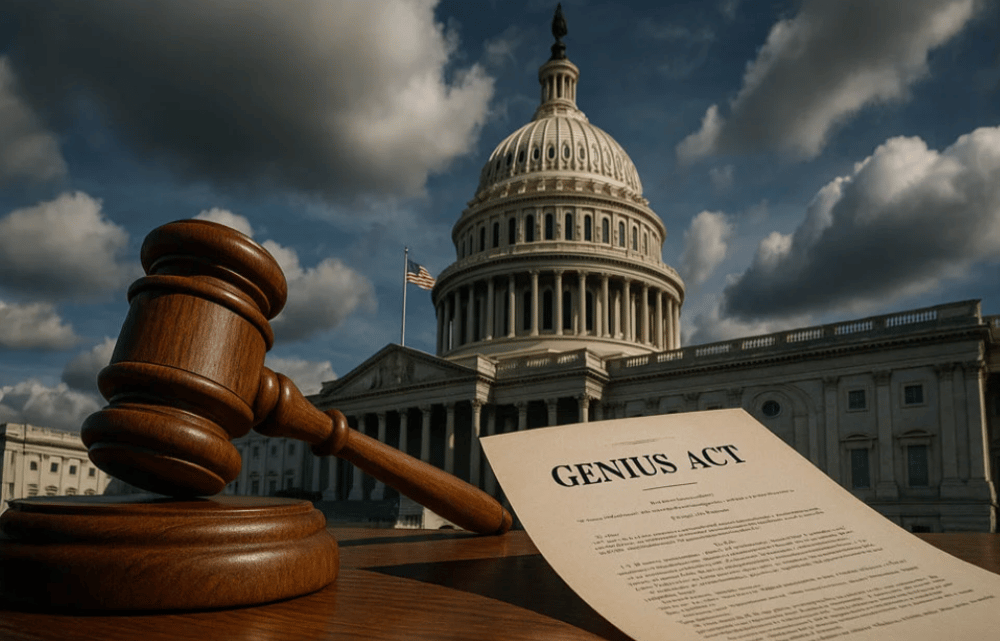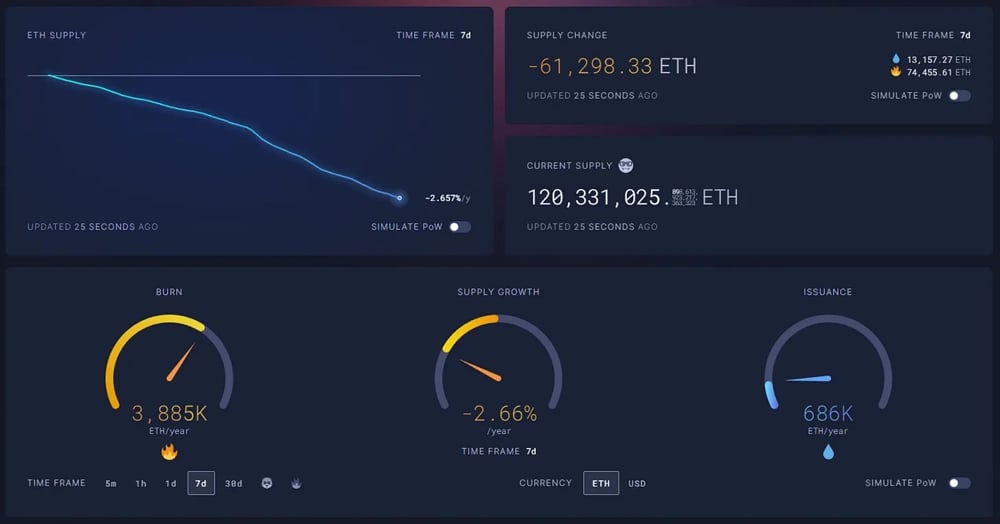GENIUS Act Passes U.S. Senate: Bipartisan Crypto Bill Targets USD-Pegged Stablecoins
In a landmark move for the digital asset economy, the U.S. Senate has passed the long-awaited GENIUS Act—the first bipartisan cryptocurrency bill to target the regulatory framework for stablecoins pegged to the U.S. dollar (USD). The bill, approved by a 68-30 vote, reflects growing political consensus that regulatory clarity is essential for protecting market integrity and fostering innovation in the blockchain sector.
While bipartisan in design, the bill saw notable intra-party divisions. Eighteen Democrats joined a Republican majority in supporting the bill, while two GOP senators dissented, highlighting ongoing ideological tensions over the role of federal oversight in the evolving digital finance ecosystem.
Regulatory Shift for USD-Backed Digital Assets
The GENIUS Act (Governmental Examination and National Integration for Uniform Standards) is designed to regulate stablecoins, a class of cryptocurrencies typically pegged to fiat currencies like the USD to reduce volatility. The bill proposes a licensing regime for stablecoin issuers, mandatory reserve audits, and increased transparency on backing assets. It also aims to limit systemic risks and prevent illicit financial activity.
Stablecoins such as USDC $USDCUSD and USDT $USDTUSD have grown into critical infrastructure within the crypto economy, serving as intermediaries in decentralized finance (DeFi), remittances, and digital commerce. Despite their popularity, they have operated in a regulatory gray zone, drawing scrutiny from both the U.S. Treasury and the Federal Reserve.
If signed into law, the GENIUS Act would mark the first comprehensive federal legislation specifically targeting stablecoin operations, potentially impacting companies like Circle, Tether Limited, and other major issuers in the U.S. market.

Key Facts:
🔹 Bill name: GENIUS Act (Governmental Examination and National Integration for Uniform Standards)
🔹 Vote outcome: 68–30 in the Senate
🔹 Targeted asset class: USD-backed stablecoins (e.g., USDC, USDT)
🔹 Focus areas: Licensing, reserves transparency, AML compliance
🔹 Next step: Review by the U.S. House of Representatives Financial Services Committee
Market Reactions and Political Undercurrents
Crypto markets initially responded with cautious optimism, with the GENIUS Act viewed as a potential catalyst for broader institutional adoption. However, political frictions remain. Some Democrats expressed concern over former President Donald Trump’s alleged involvement with cryptocurrency holdings, sparking debate over potential conflicts of interest and lobbying influence.
Meanwhile, House Majority Whip Tom Emmer has urged the Financial Services Committee to advance complementary stablecoin legislation by the end of July. Analysts suggest this signals a concerted effort to finalize a unified federal approach to crypto asset regulation ahead of the 2024 election cycle.
The bill’s passage also suggests a maturing political stance on digital assets, where oversight is no longer viewed as anti-innovation but rather essential to building a secure and scalable financial infrastructure.

Key Developments:
Historic Senate Approval — First-ever bipartisan crypto bill passed in the upper chamber.
Focus on USD-Pegged Assets — Regulatory spotlight on stablecoins like USDC and USDT.
Licensing & Reserves Mandates — Issuers may need federal approval and public reserve disclosures.
Political Tensions — Ongoing controversy over former President Trump’s crypto dealings.
House Review Pending — Legislative momentum shifting to the Financial Services Committee.
Legislative Milestone for Digital Dollar Ecosystem
The passage of the GENIUS Act in the U.S. Senate represents a pivotal development for the regulation of USD-pegged stablecoins and the broader digital asset economy. If enacted, the bill would establish a national framework for stablecoin issuance, enhancing legal certainty for institutions while imposing safeguards aimed at financial stability and anti-money laundering (AML) compliance.
While partisan friction remains, especially concerning the political optics of past crypto-related transactions, the GENIUS Act shows that there is growing bipartisan recognition of the need to legislate core components of digital finance. As the bill heads to the House of Representatives, the global crypto industry will be watching closely to see whether the U.S. finally lays down a comprehensive foundation for Web3-era monetary innovation.















Comments
This transaction underscores a pivotal shift in how automation will be scaled and deployed across industries
This development showcases how agility in investment can fuel long-term innovation in automation